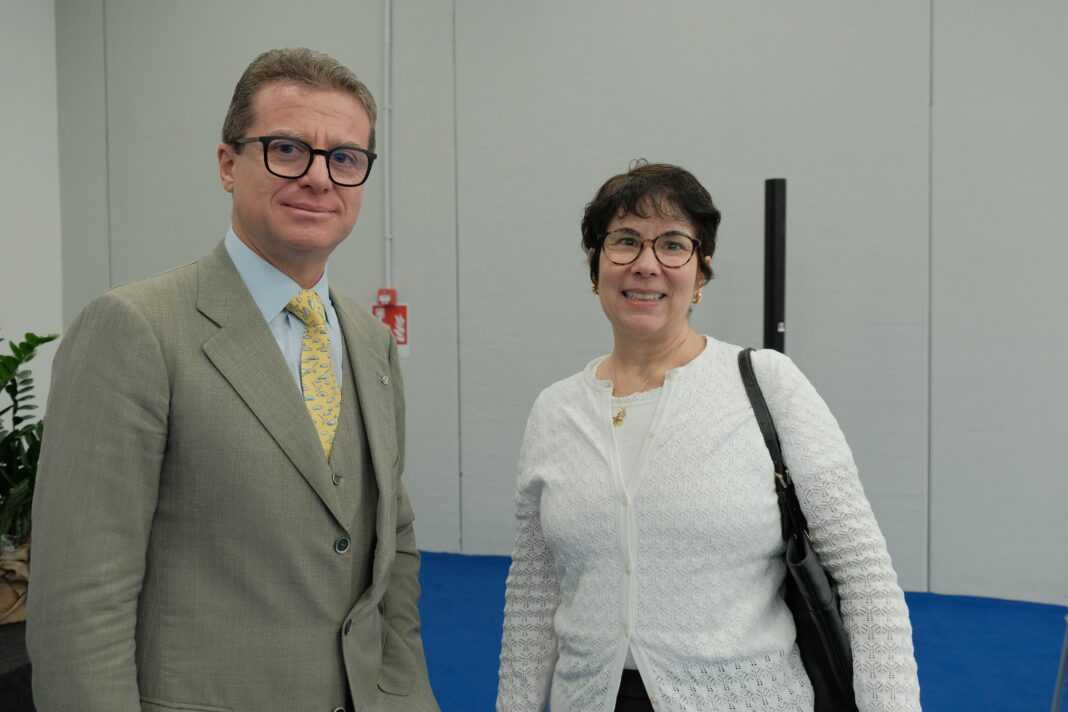LONDON, UK – Organized by the International Coffee Organization (ICO) and its Coffee Public-Private Task Force (CPPTF), on 24 April 2023 a webinar on the EU Regulation on Deforestation-Free Supply Chains (EUDR) gathered over 260 participants from across the coffee sector along with representatives from European Union (EU).
The aim was to debate the new regulatory framework developed by the EU to fight worldwide deforestation and forest degradation. The third event of its kind over the past 12 months, the ICO sought to raise awareness about the issue, as well as to highlight solutions and a way forward.
Deforestation and forest degradation are important drivers of global warming and biodiversity loss. As a major economy and commodity-consuming market, the EU took a decisive step towards forest protection with the EUDR, as agreed upon in December 2022 by the European Commission, Council and Parliament. The Regulation will prohibit the placing on the EU market of certain products that are linked to deforestation and/or not produced according to applicable local laws in producing countries.
Working alongside with the European Union, other coffee consuming and producing countries, the private sector and key actors within the CPPTF, the ICO serves as a strategic partner and a central platform to ensure dialogue and action, advocating for a transition to a more sustainable and circular use of resources that contributes to the resilience of the coffee sector and environmental protection.
The ICO’s Executive Director, Vanúsia Nogueira, stressed:
“The EU’s comprehensive approach to achieving the food system transformation implied by the deforestation-free supply chain and to addressing the questions of how to monitor countries around the world and make this goal achievable, including by farmers, will involve multilateral engagement and dialogue with consuming and producing countries, as well as the private sector.
The ICO is ready to facilitate this dialogue. Combating deforestation should go hand in hand with creating incentives for a transition to a more sustainable use of natural resources, which will help preserve more intact forests, stimulate market opportunities for sustainable coffee products, and ensure responsible consumption.”
During the webinar, interventions focused on the need for concerted public and private action to increase resource efficiency, fundamentally shifting consumption patterns and production processes that support sustainable production and responsible consumption. The EU representatives present addressed key concerns related to the Regulation’s definitions and implementation.
Astrid Ladefoged, Head of Unit, Planetary Common Goods, Universal Values & Environmental Security, DG ENV, European Commission, stated:
“A country benchmarking system operated by the Commission will assign a risk level to countries of part thereof identify countries as presenting and result in three categories, a low, standard or high risk of producing commodities or products that are not deforestation-free or in accordance with the legislation of the producer country. The list will be available when the Regulation will be entering application at the end of 2024. Nevertheless, high-risk classification will not mean that all commodities produced in the countries listed as such are not compliant with the regulation and will not entering the EU market. This means that countries will be subject to enhanced scrutiny, meaning a higher level of minimum inspection rates obligations for member states competent authorities to conduct.”
Head of Unit, Sustainable Agri-Food systems and Fisheries at the Directorate-General for International Cooperation and Development of the European Commission, Dr Leonard Mizzi, stressed the importance of discussing and engaging at country level with stakeholders, and how a multi-stakeholder approach involving all parts of the value chain, especially farmers and farmer organizations, will address environmental challenges and progress key environmental objectives while embedding, at the same time, social considerations into the decision and policy-making process.
The webinar also represented a unique opportunity for the audience to share valuable examples of actions and tools already available and implemented in producer countries, such as Brazil and Costa Rica. They shared the efforts of supporting sustainable production and conservation, especially in at-risk landscapes, to foster conservation impact on the ground and build future-proof landscapes, adding value to their products in compliance with the necessary eco-transformation of the coffee supply-chain.
In his final remarks, Massimiliano Fabian, Chair of the International Coffee Council of the ICO, concluded:
“Europe is the world’s largest coffee market. On average, the EU 27 accounts for 34% of the total coffee exports for the 51 origins, meaning that Europe is importing and transforming more than one third of the coffee production of the world.
Therefore, the new EU regulation could be an opportunity to reinforce the cooperation between farmers, businesses and governments towards the adoption of a systemic approach to sustainable sourcing. As a depositary of the only trade instrument for coffee diplomacy and action, the International Coffee Agreement (ICA 2022), the ICO and its Coffee Public Private Task Force will be in a position to assist all stakeholders and partners in bridging the gap between aspiration and implementation.”
Throughout the discussion, the ICO reiterated its willingness to work with the EU and all coffee sector stakeholders to find and implement optimal and inclusive solutions on the EUDR.
















